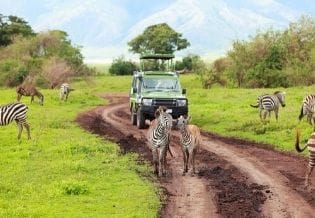About the Journal of Wildlife
A globally recognized open-access platform advancing ecological research, conservation biology, and biodiversity science across wild animal populations and natural ecosystems.
Scientific Excellence
Rigorous peer review ensures that published research meets the highest standards of methodological quality, analytical robustness, and ecological validity. With an acceptance rate of 66% and a time to first decision of 24 days, JWL offers a transparent and efficient review process.
Global Accessibility
Open-access publishing removes paywalls, enabling researchers in resource-limited settings to access and contribute to wildlife science.
Conservation Impact
We prioritize research that directly informs management strategies, policy development, and on-the-ground conservation actions. Accepted manuscripts are published within 2 days of final acceptance, ensuring rapid dissemination of critical findings.
JWL welcomes the following article types: Original Research Articles, Review Articles & Literature Reviews, Case Reports & Case Studies, Short Communications & Rapid Communications, Clinical Trials, Letters to the Editor, Editorials, Commentaries, Mini-Reviews, Book Reviews, Perspectives, Conference Proceedings, Theses, and Opinion Pieces. Our scope encompasses population-level studies, species interactions, behavioral ecology, and ecosystem processes that shape biodiversity patterns.
Research on population structure, demographic trends, spatial distribution patterns, metapopulation dynamics, and life history strategies across wild species.
Evidence-based conservation strategies, threat assessments, protected area management, habitat restoration, and species recovery programs.
Studies of animal behavior in ecological contexts, including foraging strategies, mating systems, social organization, and behavioral adaptations.
Predator-prey dynamics, competition, mutualism, parasitism, and community-level interactions that structure ecosystems.
Wildlife roles in nutrient cycling, seed dispersal, pollination, herbivory, and other ecosystem functions critical to ecological integrity.
Survey methods, species inventories, diversity indices, and monitoring protocols for tracking biodiversity across spatial and temporal scales.
Conflict mitigation, coexistence frameworks, urban wildlife ecology, and socio-ecological dimensions of wildlife management.
Habitat selection, landscape connectivity, land-use impacts, climate-driven range shifts, and habitat quality assessment.
Ecological impacts of non-native species, control strategies, risk assessments, and restoration of native communities.
With an average time to first decision of 24 days and acceptance to publication in just 2 days, JWL ensures timely dissemination of urgent conservation findings.
Broad international readership across academia, NGOs, government agencies, and conservation practitioners.
Immediate and permanent free access maximizes research impact and accelerates knowledge transfer.
Constructive feedback from leading wildlife scientists enhances manuscript quality and ecological rigor. Our acceptance rate of 66% reflects a balance between accessibility and academic excellence.
JWL recognizes that effective wildlife conservation requires integration across multiple disciplines. We welcome research that bridges ecology with genetics, remote sensing, environmental policy, social science, and emerging technologies. This interdisciplinary approach enriches our understanding of complex socio-ecological systems and informs holistic management solutions.
Published articles in JWL reach diverse audiences through strategic indexing, social media promotion, and partnerships with conservation networks. Our commitment to open access ensures that research findings inform field practitioners, policy makers, and educators in real-time, accelerating the translation of science into conservation action. The average time from submission to publication is 35 days, supporting rapid knowledge transfer.
Authors should prepare manuscripts according to our detailed Instructions for Authors, which outline formatting requirements, ethical standards, and structural elements.
- Prepare Your Manuscript: Review submission guidelines and ensure compliance with JWL's ethical and formatting standards.
- Electronic Submission: Submit through the online submission portal for efficient processing.
- Alternative Submission: Manuscripts may also be submitted via email to [email protected].
- Peer Review: The editorial board coordinates expert review, typically providing initial decisions within 24 days.
- Revision & Resubmission: Authors receive detailed feedback to strengthen manuscripts before final acceptance.
- Publication: Accepted manuscripts are published promptly within 2 days of final approval, with permanent DOI assignment and open-access availability.
JWL's editorial board comprises internationally recognized experts spanning wildlife ecology, conservation biology, population dynamics, and ecosystem science. Their diverse expertise ensures balanced, rigorous evaluation across taxonomic groups and geographic regions.
National Research Center for Veterinary Medicine
Campinas State University
University of Campania Luigi Vanvitelli
Université d'Abomey-Calavi
State Veterinary Institute PIWet
Lanzhou University
Sarguja University
Norwegian University of Life Sciences (NMBU)


